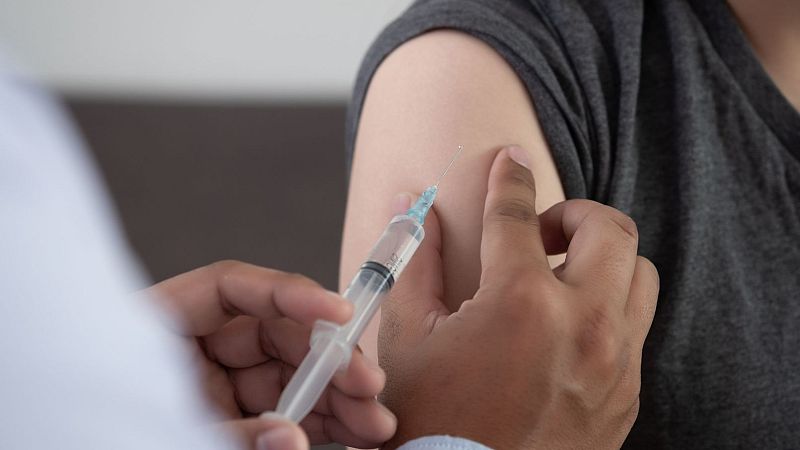
In a world first, the United Kingdom is rolling out a vaccine to prevent gonorrhoea – but it is not likely to reach patients in mainland Europe anytime soon.
The jab will be offered through the UK's National Health Service (NHS) to people in England at high risk of contracting gonorrhoea, after a vaccine advisory committee concluded in 2023 that it could help reduce the country’s surge of sexually transmitted infections (STIs).
In studies, the vaccine was between 32.7 per cent and 42 per cent effective against gonorrhoea, the advisory group found. That means the jab could help reduce, but not completely eliminate, the risk of infection.
The vaccine, known as 4CMenB and sold by GSK as Bexsero, was not originally created with gonorrhoea in mind.
It’s been authorised for more than a decade in both the UK and the European Union to prevent meningococcal disease, which causes meningitis and bloodstream infections.
The UK has recommended that babies receive the vaccine since 2015, with Ireland, Italy, Portugal, France, and Germany later following suit.
Uptake has been spotty elsewhere in the EU.
Why won't Europeans be able to access the vaccine?
The bacteria that cause meningococcal disease and gonorrhoea are closely genetically related.
Real-world data from New Zealand and elsewhere indicate that the 4CMenB jab could be particularly effective against gonorrhoea, though a randomised trial in France concluded that it was not effective.
The vaccine hasn’t been approved to prevent gonorrhoea in the UK, meaning the NHS programme will offer it for off-label use.
Beginning in August, gay and bisexual men who have a recent STI or history of multiple sexual partners will be eligible for immunisation, in the hopes of slowing the bacteria’s spread.
England saw 85,000 new gonorrhoea cases in 2023, the highest level since records began in 1918, the NHS said.
The vaccine "has the potential to help us to turn that around," Matt Phillips, president of the British Association for Sexual Health and HIV, said in a statement.
But other Europeans won’t have access to the jab.
The EU’s scientific advisory group is not considering whether it should be authorised to prevent gonorrhoea, and a GSK spokesperson told Euronews Health that the drugmaker is not in talks with regulators to change that.
Meanwhile, health authorities in France and Italy told Euronews Health that the jab is not on their agendas, and a German representative pointed to a review that found mixed results on the efficacy of the vaccine to prevent gonorrhoea.
The Norwegian public health agency noted that the vaccine offers "some protection" against gonorrhoea, but it stopped short of endorsing the jab.
How do you treat gonorrhoea?
Gonorrhoea is one of the most common STIs, with nearly 97,000 confirmed cases in 28 European countries in 2023 – up 31 per cent from the year before, according to the European Centre for Disease Prevention and Control (ECDC).
Cases have been rising among all age groups and among both women and men, with men who have sex with men accounting for 58 per cent of cases in 2023.
Gonorrhoea can cause burning during urination, discharge from the genitals, and pain in the lower abdomen or testicles. It can lead to serious health issues if left untreated, such as pelvic inflammatory disease in women.
Symptoms typically appear two weeks after infection, but many people don’t have symptoms and can unknowingly spread gonorrhoea to their sexual partners.
Gonorrhoea can be treated with antibiotics, though the surge of cases in recent years raises the risk that people will be infected with drug-resistant strains that are harder to treat.
That’s one problem the UK is hoping to address with the new vaccination programme, according to Dr Sema Mandal, deputy director of the UK Health Security Agency.
"This vaccination programme is a hugely welcome intervention at a time when we’re seeing very concerning levels of gonorrhoea, including antibiotic-resistant gonorrhoea," Mandal said in a statement.







